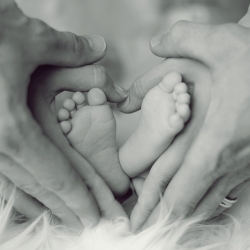To provide the best experiences, we use technologies like cookies to store and/or access device information. Consenting to these technologies will allow us to process data such as browsing behaviour or unique IDs on this site. Not consenting or withdrawing consent, may adversely affect certain features and functions.
The technical storage or access is strictly necessary for the legitimate purpose of enabling the use of a specific service explicitly requested by the subscriber or user, or for the sole purpose of carrying out the transmission of a communication over an electronic communications network.
The technical storage or access is necessary for the legitimate purpose of storing preferences that are not requested by the subscriber or user.
The technical storage or access that is used exclusively for statistical purposes.
The technical storage or access that is used exclusively for anonymous statistical purposes. Without a subpoena, voluntary compliance on the part of your Internet Service Provider, or additional records from a third party, information stored or retrieved for this purpose alone cannot usually be used to identify you.
The technical storage or access is required to create user profiles to send advertising, or to track the user on a website or across several websites for similar marketing purposes.
 A new poll suggests that while 98 percent of women want to return to work after maternity leave, only 13 percent say it’s actually viable for them. The survey of 848 mothers commissioned by Careers After Babies looked at what happened to their careers after having children. The survey looked into four areas – maternity leave, returning to work, career progression and what women actually want. (more…)
A new poll suggests that while 98 percent of women want to return to work after maternity leave, only 13 percent say it’s actually viable for them. The survey of 848 mothers commissioned by Careers After Babies looked at what happened to their careers after having children. The survey looked into four areas – maternity leave, returning to work, career progression and what women actually want. (more…)






 Women taking maternity leave collectively lose out on £3.2bn worth on earnings, a fall of nearly half their average annual salary, claims new research from
Women taking maternity leave collectively lose out on £3.2bn worth on earnings, a fall of nearly half their average annual salary, claims new research from 
 With studies claiming almost as many women with children (74.1 percent) participated in the labour force as women without, in 2014, women who are juggling careers and motherhood benefit from flexibility at work the most. Recent research claims women account for 40 percent or more of the total labour force in several countries, making flexible working hours, extended
With studies claiming almost as many women with children (74.1 percent) participated in the labour force as women without, in 2014, women who are juggling careers and motherhood benefit from flexibility at work the most. Recent research claims women account for 40 percent or more of the total labour force in several countries, making flexible working hours, extended 
 A new survey of professional, mainly management-level women has revealed a lack of support for maternity returners by employers. According to the survey by working parents website
A new survey of professional, mainly management-level women has revealed a lack of support for maternity returners by employers. According to the survey by working parents website 





 Throughout the pandemic many workplaces have offered their employees more flexibility. Flexible working options such as adjusting hours, days, or place of work, are attractive to many employees.
Throughout the pandemic many workplaces have offered their employees more flexibility. Flexible working options such as adjusting hours, days, or place of work, are attractive to many employees. 






